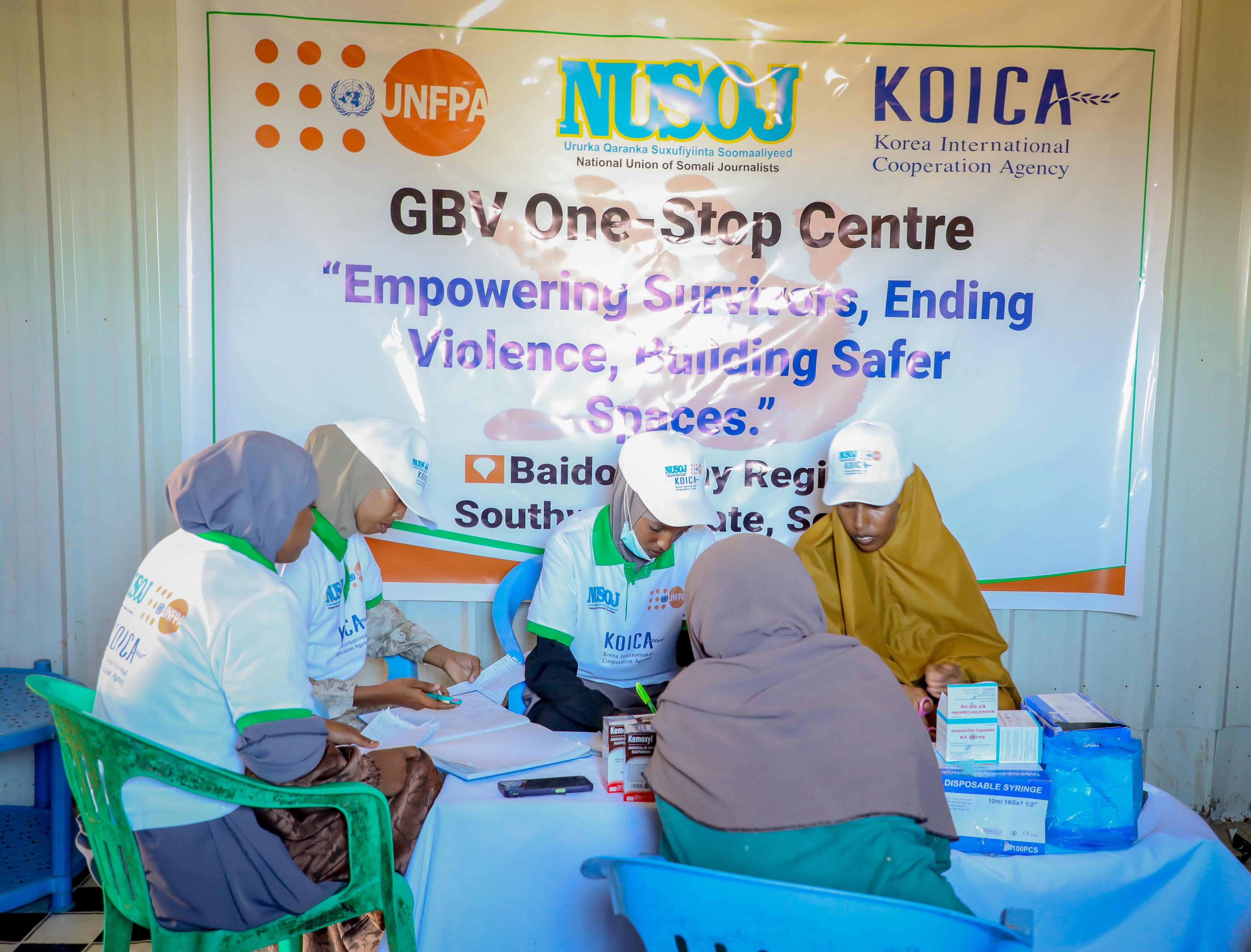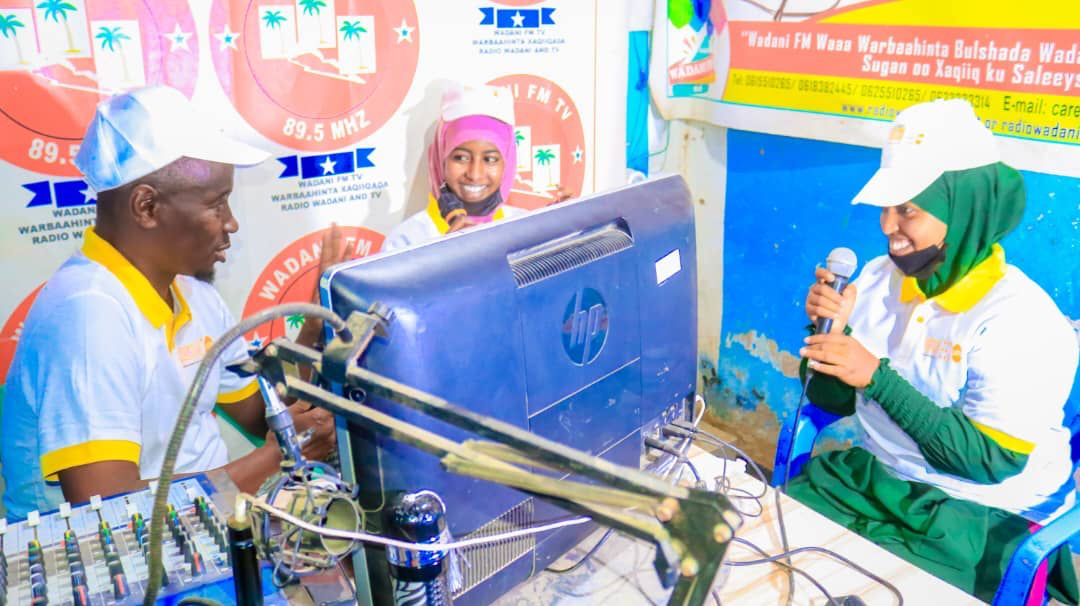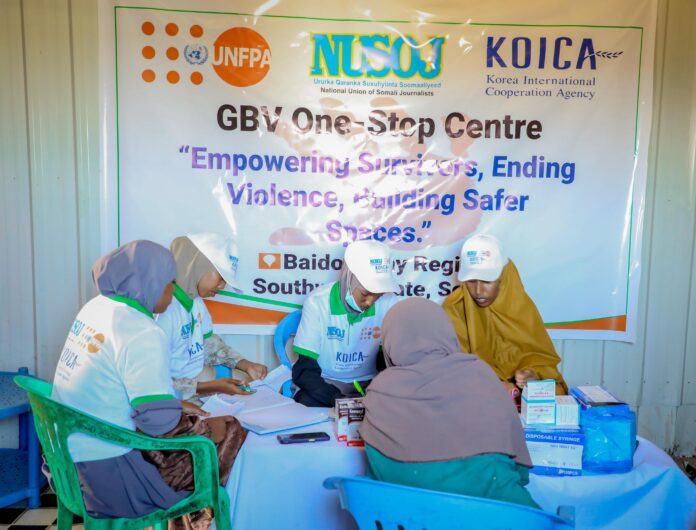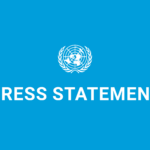Baladweyne, Somalia – December 18, 2024 (SMN) — The National Union of Somali Journalists (NUSOJ), in collaboration with the United Nations Population Fund (UNFPA) and with funding from the Korea International Cooperation Agency (KOICA), has launched a groundbreaking project to tackle gender-based violence (GBV) in Somalia’s conflict-affected regions.
Operating under the initiative “Saving Lives, Fostering Resilience: Providing Lifesaving and Integrated Sexual and Reproductive Health and Gender-Based Violence Services in Humanitarian Settings in Africa”, NUSOJ has established one-stop GBV centres in Beledweyne and Baidoa.
What makes this project unique is its dual approach: delivering integrated services to survivors while using media as a powerful tool to raise awareness and change societal perceptions around GBV. Through their broadcasts, the media is mobilising the public to take advantage of the centres’ services while breaking taboos around discussing GBV.
Journalists from NUSOJ have played a vital role in bridging the gap between survivors and the support services available. “We are using our platforms to inform, educate and inspire action,” said Osman Adan Areys, a NUSOJ leader and editor of Wadani Radio in Beledweyne. “By talking openly about GBV on Wadani Radio, we are breaking barriers and encouraging survivors to come forward.”
The centres provide comprehensive services, including medical assistance, psychological counselling and legal aid. Survivors who previously had no access to such support now have a safe environment where they can seek help without fear of stigma, according to a staff member of the GBV One Stop Centre in Baidoa. Despite challenges such as insecurity and limited resources, NUSOJ’s work has been widely praised by local authorities and community leaders for its positive impact.
With ongoing support from UNFPA and KOICA, NUSOJ’s Organising Secretary, Nima Hassan Abdi, stated that the union remains committed to expanding its services while continuing media-driven advocacy and public-interest journalism to ensure GBV survivors across Somalia receive the help they need. This unique blend of professional care and media engagement offers a promising model for addressing GBV in humanitarian settings.








